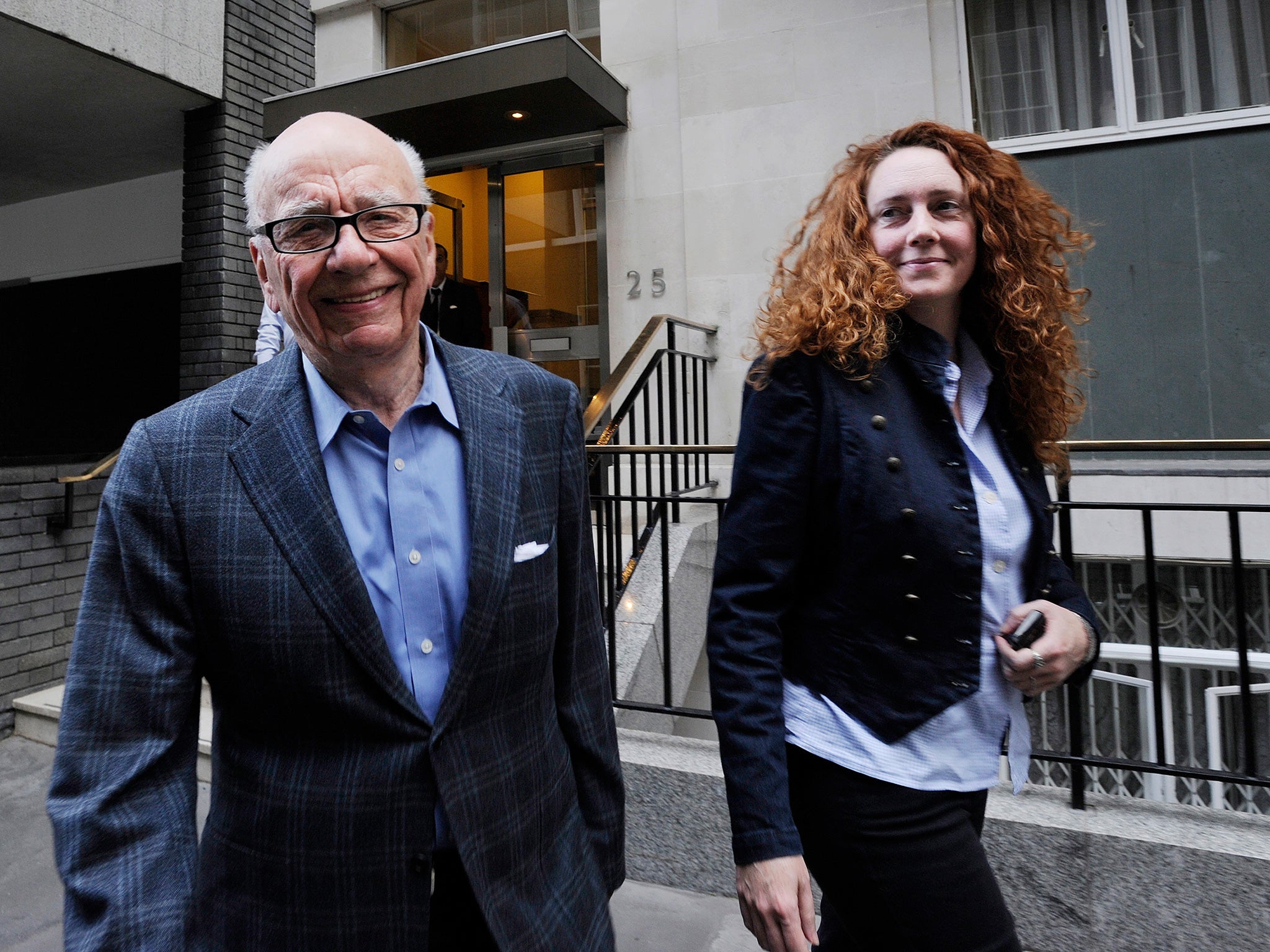Phone hacking: Rupert Murdoch's News Corp could face corporate charges as CPS receives evidence
Those holding the highest roles in the News Corporation have consistently maintained that they knew nothing of illegal activities or payments

The prospect of Rupert Murdoch and other senior executives facing corporate criminal charges over News Corporation’s role in phone hacking have increased after a “full file of evidence” from a three-year Scotland Yard investigation was passed to prosecutors.
Evidence gathered by detectives from Operation Weeting, the specialist unit of the Metropolitan Police set up to investigate illegal voicemail interceptions inside Mr Murdoch’s UK print companies, will now be examined by the Crown Prosecution Service.
The final decision on charges relating to corporate criminal liability will be taken by the Director of Public Prosecutions, Alison Saunders. Although former News International (NI) news editors and executives, including the former News of the World editor Andy Coulson, have been jailed for their role in illegal news gathering, those holding the highest roles in the company – in the UK and at an international level – have consistently maintained they knew nothing of illegal activities or payments.
The Met’s decision to hand over an extensive file to the CPS will come as a shock to News UK, the rebranded name of NI. Earlier this year authorities in the United States announced News Corp would not be facing charges relating to phone hacking. The US decision was widely interpreted in Britain as meaning the prospect of a UK corporate liability action had significantly shrunk. That analysis has potentially been overturned by the evidence file handed to the CPS.
In a statement, the CPS said it had “received a full file of evidence for consideration of corporate liability charges relating to the phone-hacking investigation.”
Ms Saunders will have to decide if there is a public interest in mounting a prosecution against News Corp, and if there is a serious prospect of legal action being successful. Corporate criminal liability is seen in the UK as being a particularly difficult area.
Mark Lewis, a partner in the law firm Seddons who was instrumental in exposing the hacking scandal, said: “It does not surprise me that a file has been sent, just that it has taken so long. Decisions that were taken very high up have yet to be analysed. Ultimately people have to look at the corporate culture, not just the people at the coalface.”
Depending on the strength of the evidence presented by the police, the US Department of Justice could seek to revisit its ruling. A statement by the department this year said if “additional information or evidence should be made available in future, the department reserves the right to reopen the [phone-hacking and bribery] inquiry.”
Although the record-breaking phone-hacking trial at the Old Bailey resulted in Coulson and others being jailed, Rebekah Brooks, the former chief executive of NI, was acquitted of all charges against her. The jury accepted that she knew nothing of the £92,000 annual contract given in 2001 to the specialist phone hacker, Glen Mulcaire.
His lucrative contracts ran until 2007, with payments reaching £105,000. They were often signed off by news editors. Other financial deals were arranged by news executives. Two were jailed, and a third was given a suspended jail sentence.
News UK was asked to comment on the file sent to the CPS. There was no immediate reply.
